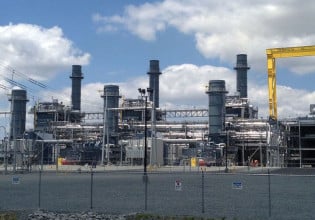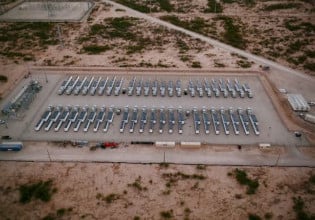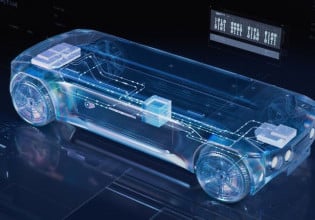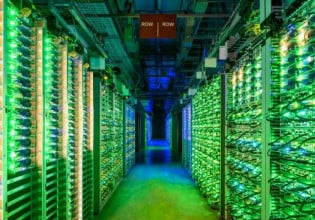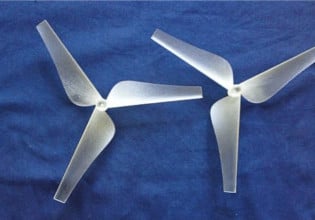Nano Nuclear Secures Review Agreement with INL on Micro Reactor Design
Nano Nuclear Energy recently secured a deal with the Idaho National Laboratory to review its portable advanced nuclear reactor design.
Nano Nuclear Energy, a New York-based startup developing a set of advanced nuclear reactors to serve the clean energy market, recently inked a strategic partnership with the Department of Energy (DOE)’s Idaho National Laboratory (INL).
Rendering of Nano Nuclear Energy’s ZEUS micro-small modular reactor. Image used courtesy of Nano Nuclear Energy
Experts from the Idaho Falls-based research laboratory will provide a design review panel for ZEUS, the company’s portable small modular reactor (SMR) concept.
INL will review technical data on Nano Nuclear’s reactor design, siting, fuel, and decommissioning plans for six months. Then, it will organize a panel review session to discuss the design in-depth and provide recommendations on the existing technology and other potential options.
Nano and INL aren’t new partners. In 2022, the company was awarded 200 hours of subject matter expertise from the INL. That project focused on delivering a thermal-hydraulics model to study temperature in the core, thermal efficiency, criticality, and reactivity coefficients during depletion, and an optimized thermal-hydraulic and neutronic reactor core design, according to the press release from last August.
Nano Nuclear executives stated that the INL’s review marks a milestone in developing its proprietary ZEUS design. The solid core battery reactor removes heat via thermal conduction and can fit inside a shipping container within existing transportation infrastructure.
The modular reactor would link to local power grids and serve the demand for microreactors producing between 1 and 20 megawatts (MW) of thermal energy. According to the INL, microreactors are up to 1,000 times smaller than typical nuclear reactors, and SMRs range from 20 to 300 MW. Comparatively, the average full-scale nuclear power plant produces 1 gigawatt of electricity.
ZEUS is designed to be portable with on-demand capabilities. Image used courtesy of Nano Nuclear Energy
Nano is also working on a second design called ODIN, a low-pressure coolant reactor using sintered pellet uranium dioxide fuel with up to 20% enrichment to minimize costs and testing requirements. The company’s website says ODIN will use a low-pressure coolant and operate at temperatures exceeding standard water-cooled reactors in most nuclear power plants today.
Advanced nuclear reactors are gaining traction as low-carbon energy resources that are smaller and cheaper than conventional nuclear plants. The International Atomic Energy Agency (IAEA)’s advanced nuclear reactor database tracks nearly two dozen U.S. companies and one national laboratory (Oak Ridge) in various development stages.
Nano Nuclear is missing from IAEA’s list, but the mix includes other major players such as NuScale (whose SMR design was the first to grab regulatory approval in the U.S.) and GE-Hitachi (building the first North American SMR).
Nuclear Fuel Fabrication
The INL partnership comes as Nano is expanding its business to the nuclear fuel fabrication market. The company recently established a subsidiary, HALEU Energy Fuel, to pursue the development of a domestic source of High-Assay Low-Enriched Uranium (HALEU) fuel fabrication for advanced nuclear reactors, including Nano’s ZEUS and ODIN models currently in development.
Video used courtesy of Nano Nuclear Energy
As Chemical & Engineering News reported last month, Nano plans to build a fabrication facility to produce fuel for nuclear reactors, national laboratories, and the DOE. The specific details are scarce, but the company claims the nuclear fuel fabrication facility would be the first in the U.S.
Nano has said the project would be fully integrated with existing facilities at INL, known as America’s central hub for nuclear research. The company will convert already-enriched precursor uranium into fuel for existing and experimental research reactors.
According to the World Nuclear Association, the U.S. has virtually no domestic nuclear fuel production capacity, mainly depending on imports to source uranium used in commercial reactors. Only a few uranium fuel fabrication facilities exist in the U.S. Nano argues its facility will fill this gap while reducing America’s reliance on non-domestic sources to serve fuel for existing and future nuclear power plants and emerging technologies such as SMRs and microreactors.




